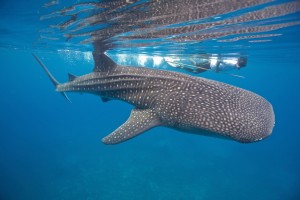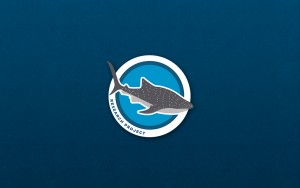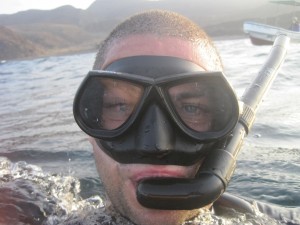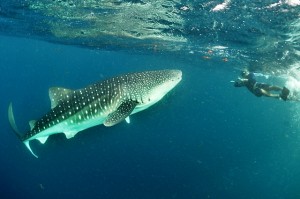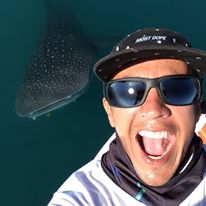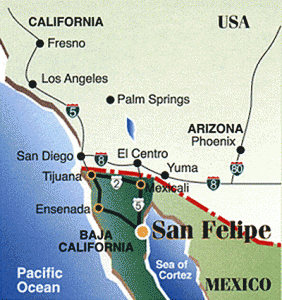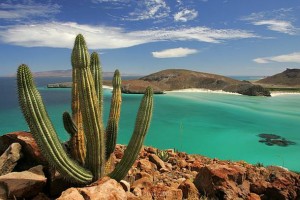Support or get involved in Research Projects!
Another fun and different way of getting involved and helping sharks is to go on a ”shark vacation” Learn more about marine conservation, the impacts of sharks and why sharks play a important role in marine communities. It’s a life time experience so take the chance to make a difference!
In Baja Carlifornia in Mexico at The Whale Shark Research Project, you would have the opportunities to volunteer hands-on with Whale Sharks, the world’s largest fish! They can be up to 18 meters long and weigh up to 20 tons.
m
m
No previous experience in a marine environment? Or any scientific background? Not a problem for them! They welcome people of all ages, nationalities and capacaties. They can suit any personal availability and commitment level creating freedom to volunteer with the research and data collection, increaseing your knowledge on marine conservation, not only will you help the sharks, you will have a fantastic time while doing it!
m
The Whale Shark Research Project in Baja Carlifornia, Mexico..
..is proud to be responsible for a continued monitoring program with its core mission to generate true conservation through the highest level of scientific research and education to encourage the sustainable use of Mexico’s natural resources both species and habitat, providing opportunities at a international and national level. This approach aims to ensure the protection of the country’s fragile marine ecosystem for future generations and re-educate its people and visiting tourists about the wonders of our blue planet and the marine species that inhabit it.
m
Meet Darren Whitehead, the scientific director and founder of the Whale Shark Research Project..
Hi,
My name is Darren Whitehead I am the scientific director & founder for the Whale Shark Research Project, a registered non-profit organisation based in Baja California Mexico, that is dedicated to scientific research, conservation, education and the community based support and direct public awareness for the protection of whale sharks in this region.
Nearly three thousand different species of marine animals inhabit the Sea of Cortez, and precisely for this biological wealth, it is considered one of the most beautiful natural settings in the world. Jacques Cousteau certainly was not wrong when he referred to it as “The largest Aquarium in the World.”
I have been very fortunate to have spent the last 6 years working with these magnificent sharks in 7 aggregation site around the world and they continue to leave my in awe by their grace and majestic characteristics as they allow us to spend a few moments of time in their presence before drifting off back into the deep. Living daily with these giant sharks for so long has given my a great understanding of what is needed to protect and conserve them in a changing world. Whether it may be through a community support program utilising them as a sustainable tourism activity or merely as a wonder of our great oceans involving the general public through volunteer experiences and active social science may in fact be our best way to unlock their global mystery before it is too late.
Darren, Whitehead
Also meet his parter Manuel Gonzalez.
Manuel has a background degree in marine biology and certified as an elite free diving instructor, his expertise in marine conservation issues and environmental monitoring offer an outstanding insight into the ocean realm. With over 10 years experience coordinating conservation projects and assisting research teams in and around the region has given him a solid background of the area and the vulnerable marine species that inhabit it.
Where is Baja Carlifornia?
Baja California Sur, bordered by two seas, has the longest coastline of all the Mexican states at more than 2,000 kilometers (1,243 miles). It is Home of the Cardón cactus, the world’s largest species of cactus which can reach heights of 21 meters (70 feet).
Furthermore, this part of the world is one of only a handful of localities globally where any research team can monitor aggregations of juvenile whale sharks, large pregnant female sharks and a variety of vulnerable species of rays and cetaceans. This biodiversity offers an outstanding global hot spot for students and volunteers to interlock both personal research goals and gain valuable marine experience in a safe surrounding.
For more information on these fantastic opportunities or just feel like helping to conserve whale shark visit:
https://www.volunteertravels.com/project/latin-america/mexico/ or http://www.whalesharkrp.com/

